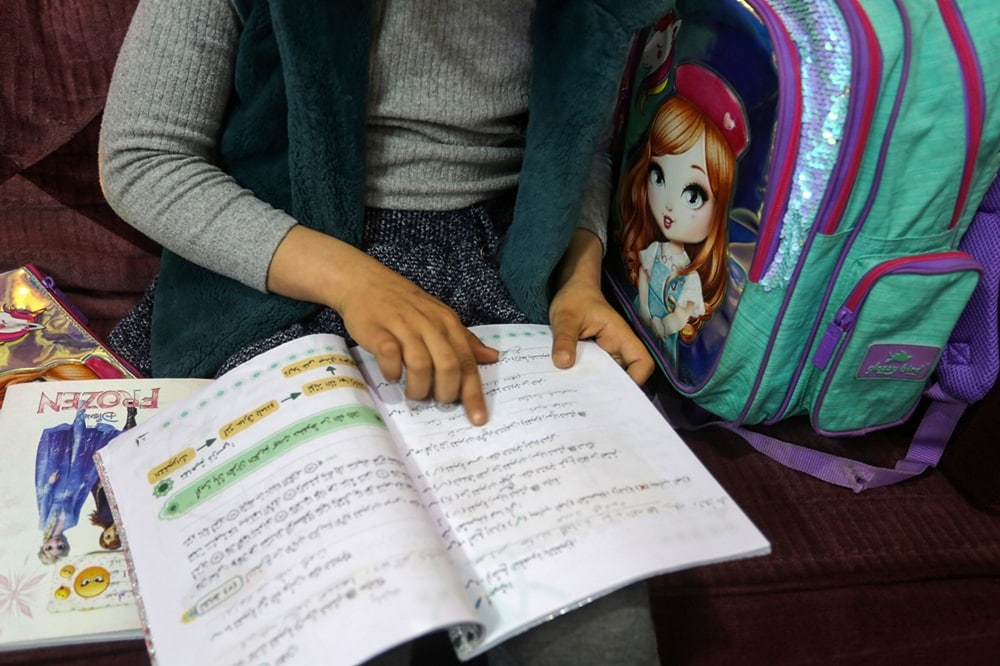
Establishment of a provisional civil administration in the Gaza Strip at the end of the war is the State of Israel’s legal and ethical imperative. Without it, Gaza will descend into anarchy and we will all be paying the price.
At the end of World War 2, Germany surrendered to the Allies. Who governed Germany in the immediate aftermath? From the moment Germany surrendered in 1945 until 1949, Germany was under a civil administration imposed by the Allies. Japan, which surrendered shortly after Germany, was also governed by a United States civil administration. This lasted for six years. The civil administrations in these two countries managed all the civilian aspects and saw to the rehabilitation of the affected areas. This was not done out of the kindness of the hearts on the part of the Allies. It was done because this was the civil practice necessary in such situations.
When an army conquers land and topples the local regime, a vacuum is created in the leadership and the conquering country is ethically and legally responsible for managing the population within the conquered area. The civil administration is by its very nature a stopgap solution, the intention being that the conquering state will rule the area until a suitable local leadership will emerge.
A look at world history and regional history shows that most civil administrations did indeed end within a few years. The State of Israel also installed provisional civil administrations during several transitional periods. This is exactly what has to be done in the Gaza Strip following the toppling of Hamas.
This is what the provisional civil administration will look like in Gaza
The Swords of Iron war will only come to an end after the Hamas regime has been toppled. We will then have to examine who will rule the Gaza Strip in its place. From the security standpoint, there is no question – the State of Israel will have to continue ruling the Strip. Such a rule could last forever. From the civilian perspective, on the other hand, the goal is to gradually install a local government.
Anyone that thinks local rule can materialize out of thin air the day after Hamas has been vanquished is having a pipe dream. This is a lengthy process. It will take years and until this happens it will be the State of Israel that will have to take care of managing civilian affairs in Gaza.
The provisional civil administration in Gaza ought to be provided by Israel through cooperation between the Security Forces and the Operations, Intelligence and Civil Administration units in the IDF. The first order of the day for the administration that will be set up will be to provide basic humanitarian solutions. These will be delivered with assistance from local players and international organizations. Such organizations cannot be of the contrarian type like UNRWA. At the same time, the lengthy process of finding a local leadership will need to proceed one step at a time.
The concept of a civil administration is perceived mostly as a negative idea, however such an administration has many advantages and it can also be strategically beneficial for Israel. A provisional civil administration will allow the population to disengage from Hamas. It can promote deradicalization processes and it can provide accessibility to significant intelligence that will be helpful in dismantling the Hamas infrastructures. In addition, the State of Israel will be able to continue to use the funds and resources at its disposal as leverage in leading in-depth processes that will create a new reality in the Strip.
Israeli rule over Gaza will also be helpful in terms of the voluntary emigration issue. There are today hundreds of thousands of people who would like to emigrate from Gaza to other countries but are unable to do so. Since Israel would also prefer as few as possible inhabitants in the Strip, there is a clear convergence of interests here. Under the provisional civil administration, the State of Israel will be able to assist all those interested in emigrating from the Strip.
Is the civil administration going to violate the Palestinians’ rights? Quite the opposite
The advantages of a civil administration in the Strip are clear. This being said, there are those that cling to lame excuses in an attempt to portray this as a horrific idea. One claim being made is that such an administration will drain considerable funds from the State budget. One need not look far to see the flimsiness of this claim. When looking at the current state in Judea and Samaria, one can see that the money from the local population and the international aid payments cover all of the expenses. This is also going to be the case in the Gaza Strip.
Another claim is that a civil administration going to violate the rights of Palestinians living in the Strip. Here, too, this is a mistake. Before a civil administration was set up in Judea and Samaria, the region had not a single university. Now every city in the region has universities, hospitals and advanced infrastructures.
The Israeli administration in Judea and Samaria has contributed much more than the corrupt Palestinian Authority has to the local population, and certainly more than what entities the likes of Hamas and Islamic Jihad will. Similarly, while Israel installed a civil administration in Gaza, we witnessed an improvement in the standard of living, which consistently deteriorated under the Palestinian Authority and subsequently under Hamas. This being the case, not only would Gaza’s residents not be harmed by an Israeli-dominated provisional civil administration, they stand to gain from it.
De-Nazification, Gazan style: the change begins with education
Besides the humanitarian civilian aspects, the greatest challenge Israel will be facing with the provisional civil administration is managing education in the Strip.
Israel has never made a significant difference in the Palestinian education system. Even in the education of the Israeli Arabs,, the State does not intervene. In Gaza, however, one must understand that the state of education is extremely problematic. Education in Gaza has been controlled by UNRWA, which blatantly incites and educates its public to annihilate Israel. This being the case, education there has got to undergo fundamental changes, exactly the way education in Nazi Germany was transformed in the process of denazification led by the Allies.
One must understand that if the State of Israel does not assume responsibility for education in the Strip, it will perpetuate the same cesspool that has produced such a catastrophic crop of terrorists. The change in the education has to be under our responsibility, however it is advisable to be assisted by external bodies such as Saudi Arabia and the United Arab Emirates, which understand the culture and the language and have already carried out a similar process. It is also advisable to make the funds coming in from these countries and the international aid moneys conditional on the actual roll-out of the new education programs. At the end of the day, it is only through controlling the money that the reality on the ground can be changed.
The day after the provisional civil administration: the future leadership in the Gaza Strip
After rehabilitating the Gaza Strip, civilian rule must be assigned to a competent body. To understand what kind of leadership will be established in the Gaza Strip going forward, one has to first understand what kind of leadership is not going to be established there – and this is the leadership of the Palestinian Authority. This is not an option because the Authority is no better than Hamas and the State of Israel cannot afford to assume such a risk. Another possibility is to assign control to Saudi Arabia and the United Arab Emirates. This possibility might have been suitable but it is inapplicable because there is not a single Arab country that has any interest in taking over management of the Gaza Strip.
The desirable course therefore is for civil management to be assigned in full to local leaders, who will evidently be selected from among the leaders of the large clans. Hamas is extremely fearful of the clans since they pose a serious threat to its existence, especially now that they are once again coming to life and are beginning to assert themselves on the ground. As opposed to Hamas, the clans seek stability in the strip, they have an interest in developing the region, and they have legitimacy from the local population. Therefore they are the entity with which Israel can and should engage. In any case, transfer of civil rule will be gradual with Israel finding the most suitable course through a process of trial and error.
Either Civil Administration or Anarchy
Certain quarters regard the idea of a provisional civil administration in Gaza to be a malicious whim of the State of Israel, the occupier. In fact this is a legitimate, commonly-accepted military solution. It is even a moral obligation. Should Israel fail to put together a systematic, gradual plan for ruling the Gaza Strip, the situation there will very quickly descend into anarchy and the rest of the world will blame us. Anarchy will first and foremost be detrimental to the Strip’s population. It will also be fertile breeding ground for re-emerging terrorism, which in turn will pose a threat to the State of Israel.
Any way one looks at it, the establishment of a provisional Israeli civil administration is the moral, much-needed solution for restoration of the Strip and for restoring calm to the region. The time has come to jettison unfounded allegations and erroneous concepts, the time has come to stop fearing the concept of a “civil administration”.






